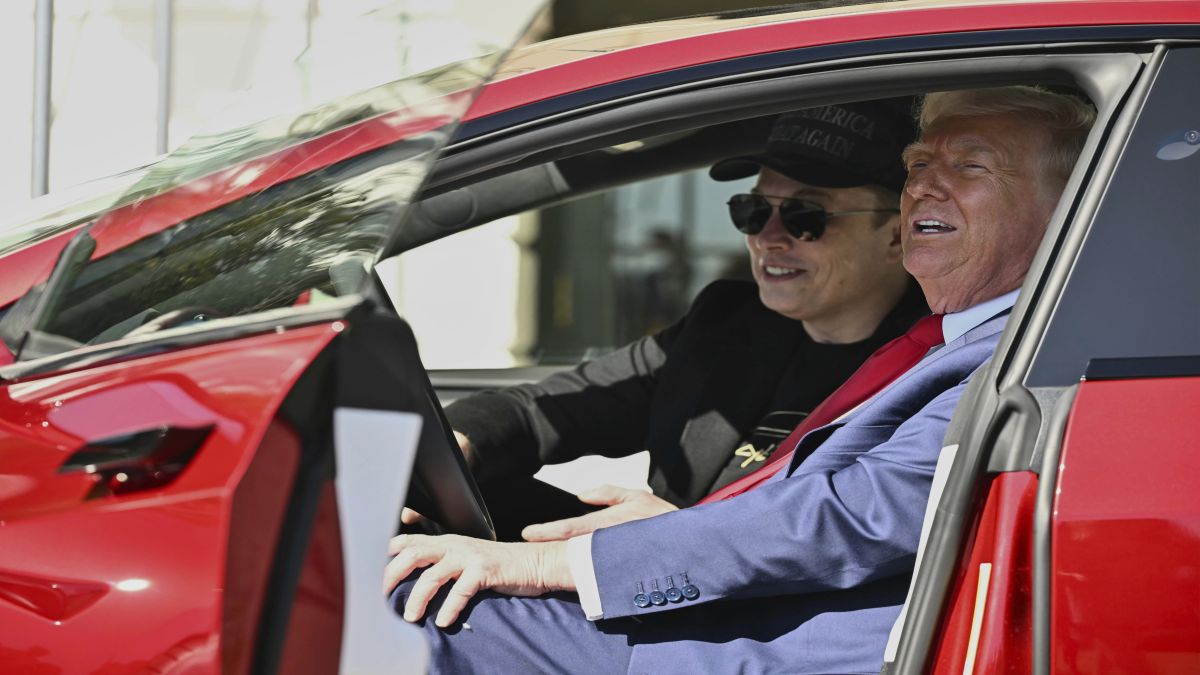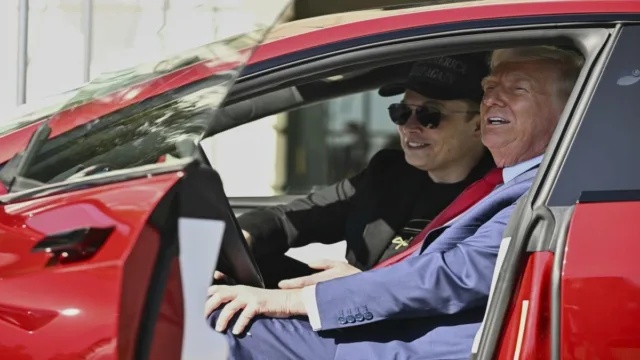)
Local competitors like BYD and Xiaomi have made major gains in the Chinese EV market while the country’s authorities have pulled back privileges granted to Tesla earlier. Musk’s fallout with Trump is also turning out to be bad for business
read more
Tesla is facing a tough road in China, and CEO Elon Musk’s souring relationship with former President Donald Trump may be making matters worse.
After years of rising sales and favourable treatment, Tesla’s position in the world’s largest electric vehicle (EV) market is under pressure.
The company’s market share in China has dropped steeply, falling from 11 per cent in early 2021 to just 4 per cent as of May 2025. Local competitors like BYD and Xiaomi have made major gains, luring buyers with better pricing, more features, and vehicles tailored to Chinese consumers’ preferences.
China pulls back privileges
The change is not just about better competition. Chinese authorities have started pulling back the incentives and regulatory support that helped Tesla grow when it first entered the country. Most central government EV subsidies have already been phased out. Now, only a limited trade-in scheme remains for consumers.
Tesla’s previously warm relationship with Beijing is starting to look much cooler.
Meanwhile, Tesla’s sales in China are shrinking. Vehicle deliveries fell 11.7 per cent in the second quarter of 2025, ending a streak of growth. To maintain volumes, Tesla has been offering steep discounts, zero-interest loans, and other promotions. Delivery wait times have shortened, suggesting demand is weakening.
Xiaomi’s YU7 SUV, launched in 2025, is one example of what Tesla is up against. The new electric model received nearly 300,000 orders within an hour of launch, directly competing with Tesla’s Model Y. BYD, another homegrown giant, continues to expand its lead in both domestic sales and export volumes.
Tesla in trouble, Musk makes it double
Now, political trouble is adding to Tesla’s difficulties. Musk has become increasingly critical of Trump, once a key ally. Their falling out is having consequences. Trump has threatened to end federal EV subsidies, which could cost Tesla more than $1 billion in annual profits. That uncertainty is unnerving investors and may be shifting Beijing’s calculus as well.
Tesla’s share price is down 22 per cent so far in 2025. Some investors blame the political risks around Musk, while others are more focused on weakening global demand and rising competition. Either way, the company’s stock is under pressure. Musk’s vocal political stances have also begun to alienate potential buyers in the United States and Europe.
China was once the cornerstone of Tesla’s global growth. Now, it is becoming a source of worry. Musk’s standing in Beijing was never just about Tesla’s cars. For years, he was seen as a valuable link to American power and business. With that political access now in question, his value to Chinese decision-makers may be diminishing.
The trouble in China comes as Tesla is also battling falling sales in Europe and a series of high-profile executive departures. A recent 11 per cent rise in Chinese EV sales in June offered a brief moment of optimism, but analysts caution it may be too early to call it a turnaround.
Tesla is not the only foreign automaker struggling in China. But few are as tied to their CEO’s personal brand as Tesla is to Musk. As his clash with Trump grows louder and more unpredictable, that personal brand is starting to look like a liability, both at home and abroad.
End of Article









